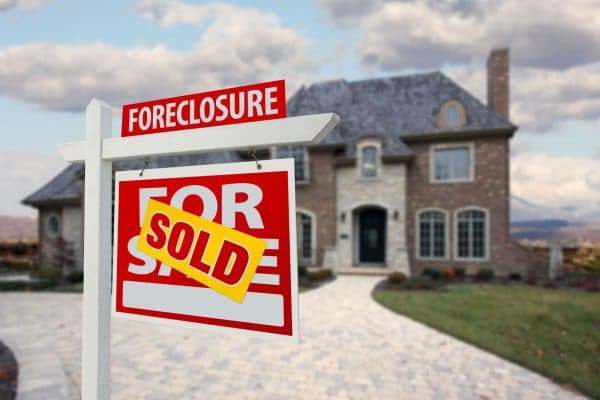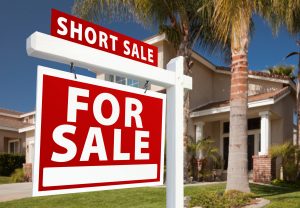In this article, we’re explaining some of the technical terminologies when it comes to understanding the difference between foreclosed homes and short sale homes. Both are ways to sell your house fast and are often confused. They’re options for people who have fallen behind with paying the mortgage and are struggling. There are key differences between them, though, and our homeowners FAQs show that people need to know if short sale vs foreclosure is the best option for them. We’ve defined both of these real estate terms and then taken a look at the vital differences between them to help clear up any of the confusion on the matter. We know that real estate laws can be a lot to take in.
What is a foreclosure?
Foreclosure is a process that ensues when a borrower (the person with a mortgage on a home) is not able to make their repayments for a long time. After around 3-6 months without making a payment, there is something called a Notice of Default. The County Recorder’s Office can issue this and at this point, the borrower has been warned of foreclosure, which can lead to eviction. This Notice is a prompt for borrowers trying to settle their debt. They can use the next month to 120 days negotiating with the lender or getting to the point of paying the balance that is outstanding. This period of time follows the Notice of Default. During this time, if the lender finds that the debt can’t be settled then they foreclose on the property. This means that an auction is set up and the house is sold at foreclosure. These auctions are a place where developers and other investors look to pick up affordable real estate. If the home still doesn’t get sold under these circumstances, the lender is then technically the owner of the property. Foreclosed homes can also be avoided by creating a deed in lieu. This is effectively a deal between the borrower and the lender to transfer the homeownership in return for having their debts written off.
borrower has been warned of foreclosure, which can lead to eviction. This Notice is a prompt for borrowers trying to settle their debt. They can use the next month to 120 days negotiating with the lender or getting to the point of paying the balance that is outstanding. This period of time follows the Notice of Default. During this time, if the lender finds that the debt can’t be settled then they foreclose on the property. This means that an auction is set up and the house is sold at foreclosure. These auctions are a place where developers and other investors look to pick up affordable real estate. If the home still doesn’t get sold under these circumstances, the lender is then technically the owner of the property. Foreclosed homes can also be avoided by creating a deed in lieu. This is effectively a deal between the borrower and the lender to transfer the homeownership in return for having their debts written off.
What is a short sale?
A short sale is an option for those who are struggling to pay their mortgage. It is when the borrower owes more than the market value. The borrower on the mortgage needs to request that the lender accepts less than the total amount

owed. If your borrower sells the home for $200,000 but still has a remaining loan balance of $220,000, they are $20,000 short of the initial agreement. Short sale homes are one of the options for those who cannot pay the full amount. A short sale comes with a huge amount of paperwork and the fact that the lender has such a big say makes the process much more difficult. Some people find that the process can take many months to get properly underway, and this is frustrating and can lead to debt problems mounting even further.
What are the differences between them?
Both foreclosure and short sale options are great for those who “own” homes (or have mortgages and are currently living in the home) but are struggling to keep up with payments. Unfortunately, they both have other similarities in that they can alter your credit score and stay on your credit report for many years. Short sale homes are transactions that occur when the borrower is happy to accept a lesser value from the sale. It is something to be negotiated with the lender and can avoid them losing out on money, too, so sometimes makes sense for all parties. A foreclosure process is along the route of repossession and the owner is not likely to be looking for this option! Foreclosure can still be a route out of the debt troubles, and though it is not how anyone envisages their home ownership going, it can be the best solution. Short sale vs foreclosure is a decision that may be taken away from you depending on your lender, and whether you can negotiate a short sale with them. In these scenarios, it is undoubtedly best to talk to the professionals and work with trusted real estate companies who can advise on options when it comes to selling your house fast. There are investors and cash buyers who can buy your home quickly and “as is” and this can be an alternative to stop you from getting any sort of negative marks on your credit report. Foreclosed homes and short sale homes should be a worst-case scenario. Neither of these is an ideal way to sell your home and avoiding the processes is preferable. Speak to a professional to work out the best solution to your problems when it comes to selling your home.


